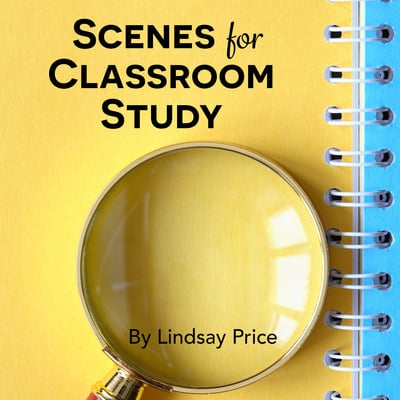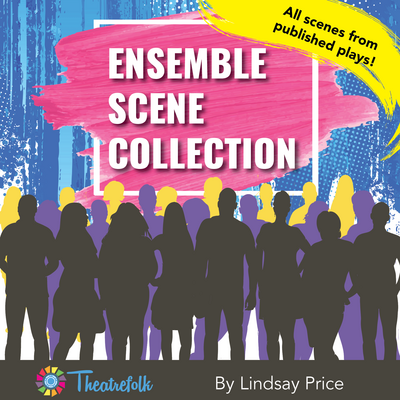Connecting the Past to the Present: Modernizing a Scene
When working with historical theatre pieces by playwrights like Shakespeare and Marlowe, a common complaint is that their diction is difficult for students to understand. One way to help students connect with the material and understand it is to modernize the scene that they’re working on by placing it in the context of social media, television, or other media forms that they’re familiar with. Here is an exercise for students to increase their comprehension of the scene by translating it into modern language and mediums.
Divide students into groups and assign each pair a scene from the play that the class is currently working on. First, have students summarize the scene in five sentences or less. Then, have the students “translate” the scene line by line, from classical language to modern language. That way, they can decide on the most important and interesting parts of the scene.
From there, have students devise a performance that presents their translation to the rest of the class in a creative and modern way. These performances could be presented via live performance or a pre-recorded video project.
Here are some ideas on how students can present their translations:
- Two students narrate the scene as news reporters while the rest of the group performs. For example, here’s a take on a scene from Romeo & Juliet:
“Well Todd, the Capulets have really outdone themselves tonight with this great ball. Lady Capulet is ravishing in a gown by Valentino.”
“This just in: Sources are reporting that Romeo Montague and a number of his friends have crashed the party. No signs of any Montagues yet, but we’ll keep our eyes peeled. Back to you, Sarah.”
- Two students narrate the scene as sports commentators while the rest of the group performs. This is a great choice for active scenes or fight scenes. Here’s a sample that could work for Macbeth:
“And Macduff with a might swing of the sword; he nearly took off Macbeth’s arm with that one! But wait a minute… he’s saying something… WHAT?! He’s saying he was from his mother’s womb untimely ripped!!! Can you believe it?!”
“Yes fans, we have just learned that Macduff was born by Caesarean section, and I tell you, Macbeth is STUNNED. He certainly wasn’t expecting that from his opponent! But he’s continuing to fight! What is gonna happen next?!”
- Create a reality show , performing as the characters and using the modern lines translation of the scene. Include to-the-camera confessionals. For example, confessionals from A Midsummer Night’s Dream might sound like this:
HERMIA: “Can you believe that Helena said I’m “little and fierce”? I can’t help it that she’s taller than me! And then Demetrius and Lysander start FIGHTING over her?! I don’t get it! It’s like they’re under a spell or something!!!”
HELENA: “I did say that Hermia is “little and fierce” because she’s scary when she gets mad! However, I have NO idea why Demetrius and Lysander are acting so weird. Up until now, they were both in love with Hermia! Don’t get me wrong, it’s kind of nice to have the attention for once, but honestly it’s starting to freak me out!”
- Create a series of social media shares to document the scene, like faux Facebook posts, Twitter updates, Snapchat stories, or Instagram photos. These could be presented in video or Powerpoint form, or the shares could be made poster-sized and presented as a live performance. Here’s an example of a Twitter feed that might be created for The Taming of the Shrew:
@BiancaXO
dad says I can’t date till my sister does SO UNFAIR! #gonnabeanoldmaid @KatMinola
.@BiancaXO give it a rest you’re such a brat #dramaqueen @MusicHrtnsio
Got a plan on how I’m gonna see my girl @BiancaXO today LOL #litio #lute @VeronaPetruchio
@MusicHrtnsio this plan of yours better work I’m here to make cash money in Padua #dollabillsyo
Encourage students to push themselves outside their comfort zone and have some fun exploring classical scenes in a new and different way. Have fun!
Related Articles
Scenes for Classroom Study
by Lindsay Price
Scenes for Classroom Study consists of scenes from published Theatrefolk plays and is designed to help with character study, scene work, substitute teachers, performance, Individual Event competitions and so much more.
Ensemble Scene Collection
by Lindsay Price
Looking for quality scenes for your ensemble that haven't been done a million times? This Ensemble Scene Collection contains 33 scenes from published plays - great for competition and classwork!





